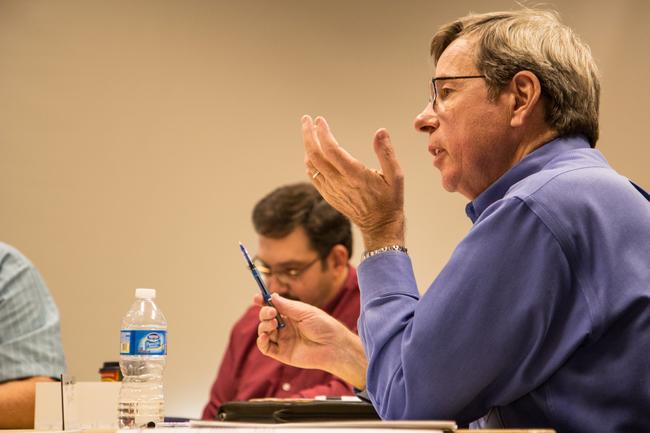The future of the University of Missouri Press became a hot topic of discussion at Faculty Council meetings throughout the academic year. The institution’s fate was a staple on the meeting’s agenda, and was often a controversial, divisive subject.
The internationally-rewnowned institution started attracting attention when a July 19 MU news release announced that the UM Press, formerly not located on any of the University of Missouri System’s four campuses, would be moved to the MU campus in an effort to establish a “re-imagined” press, undergoing a large-scale shift.
“This new 21st century press will enable the University of Missouri to be an innovator and nationwide leader in university publishing at a time when traditional academic publishing is being challenged to maintain its position as the main venue for scholarly book publishing,” MU Chancellor Brady Deaton said in the release.
But at the Aug. 22 Faculty Council meeting, UM Press Editor-in-Chief Clair Willcox had news to share.
Willcox told the council he had been laid off and three more employees would be eliminated in the following week.
“It’s a phony press and a bogus press and isn’t going to stay afloat,” Willcox, who was critical of decisions made by MU officials, told The Maneater in August.
Jane Lago, former managing editor of the UM Press and prominent voice behind the “Save the UM Press” Facebook page, also had her reservations.
“I don’t think all is well (with the UM Press),” Lago told The Maneater. “Many unhappy authors are conjecturing that the sole purpose of this announcement was to undercut the grounds of their lawsuits, which said that the entity they were contracting no longer exists.”
Lago, who worked at the UM Press for 33 years, took issue with the manner in which Willcox was terminated. She said it was suspicious that Willcox remained fired on the grounds that the press was disbanding, even after it became clear that it was not.
“There’s something fishy going on,” Lago said in August.
In response to the collective outrage over the issue, the university created an advisory committee that could guide the transition of the UM Press to the MU campus. The committee would work closely with MU and the UM Press to establish an institution adaptive to the changes in the world of scholarly communication, according to an Aug. 28 MU news release.
The committee held meetings throughout the academic year and discussed a wide range of issues related to the transition of the UM Press.
Lago, one of the committee members, was also hired as the consulting director of the UM Press. After the first committee meeting, she said she felt much better about the future of the press.
“Right now (the UM Press only has) a staff of seven, so we have our work cut out for us,” Lago told The Maneater in October. “But I think things are definitely looking up.”
Willcox was eventually re-hired as editor-in-chief in October by MU officials.
After about a year, the transition of the UM Press continues to be a contentious issue in Faculty Council meetings. Although Faculty Council members are speaking more positively about the fate of the UM Press these days, getting the institution back to top-form still seems to be an uphill battle.








